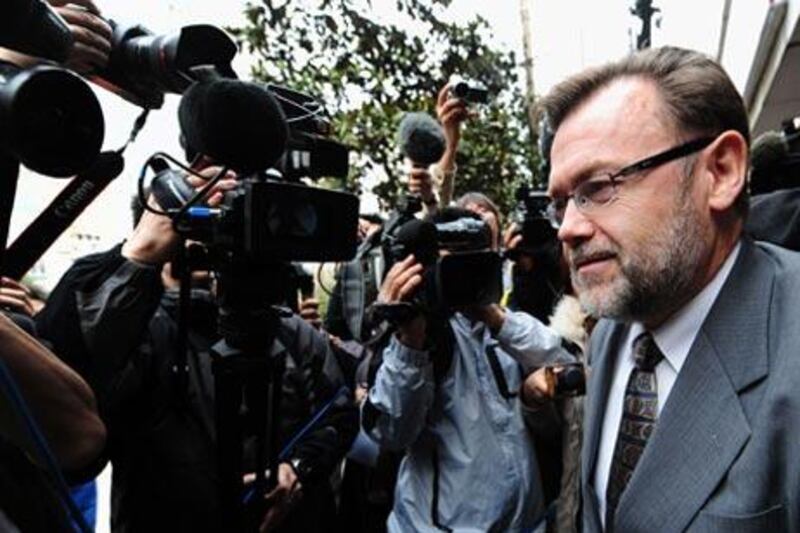A Chinese court today sentenced four employees of mining giant Rio Tinto to jail terms of seven to 14 years on bribery and commercial secrets charges, in a case seen as a barometer of China's treatment of foreign business as trade frictions increase. The court in Shanghai found Australian national Stern Hu and three Chinese co-workers guilty of all charges. It sentenced Hu to seven years on the bribery charges and five years on the stealing commercial secrets charges, but said he will serve 10 years, apparently receiving a reduced total because he admitted to bribery.
The sentences were much stiffer than had been expected by Australian media. The arrests of the Rio Tinto employees last August were initially thought linked to Beijing's anger over high prices it paid for iron ore - a key commodity for China's booming economy. Rio Tinto, based in London and Melbourne, is one of the top suppliers of ore to China and a key industry negotiator in price talks with China's state-owned steel mills. The two sides are in another standoff this year in price negotiations. The longest term of 14 years was given to Wang Yong, of which 13 years was for accepting bribes. Reports last week on the website of the Chinese financial magazine Caijing said Wang was accused of receiving US$9 million (Dh33.1m) from Du Shuanghua, a steel tycoon whose company, Rizhao, has chafed at the state-dominated pricing arrangements, setting his own agreements with overseas ore suppliers. The judge told the court that the case had caused "severe" losses to China's steelmaking industry and had hurt the interests of the country. The other defendants, Ge Minqiang and Liu Caikui, were sentenced to jail terms of eight and seven years respectively. All had pleaded guilty in a three-day trial last week to the bribery charges, but had disputed the amounts they were alleged to have accepted. Hu's lawyer Jin Chunqing told the Associated Press that an appeal had not yet been decided. "We haven't decided yet if we would appeal to the higher court or what we should do for the next step, as we need to meet and discuss with Stern face to face, and as soon as possible," Mr Jin said. Calls to lawyers for the others were not immediately answered. There have been no reports about what has happened to the people who bribed the four. * AP





